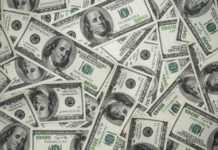
Bangladesh’s balance of payments (BoP) returned to the black in July on the back of a sharp decline in imports and a rise in remittance and exports.
The BoP, which states all transactions made between one country and the rest of the world, stood at a deficit of $77 million in July last year.
But it climbed to a surplus of $1.127 billion in the first month of the current fiscal year, data from the central bank showed.
Similarly, the current account balance was $108 million in the negative in July last year, but it jumped to $1.965 billion in the positive in the same month this year.
The current account includes a country’s net trade in goods and services, its net earnings on cross-border investments, and its net transfer payments.
Remittance inflow was up 62.7 per cent year-on-year to $2.6 billion. Export rose 0.84 per cent to $3.826 billion.
This narrowed trade deficit sharply: it was $1.061 billion in July last year but it came down to $86 million in July this year.
Foreign direct investment declined 28.87 per cent to $170 million.
“There has been a major change in the balance of payment in July, signalling both strengths and weaknesses in the economy,” said Zahid Hussain, a former lead economist at the World Bank’s Dhaka office.
He said the current account registered a surplus of nearly $2 billion. This was due to the sharp decline in the trade deficit and a significant spike in remittances.
As a result, the overall balance had a surplus exceeding $1.1 billion despite a deficit in the financial account. This contributed to an increase in official foreign exchange reserves as Bangladesh Bank purchased dollars to prevent exchange rate appreciation.
“Thus, the comfort on the financial side has increased,” Hussain said.
The concern is about the strength of recovery on the real side of the economy: the balance of savings and investments.
A current account surplus implies an excess of savings over investments. Such excess can arise if domestic demand is weak.
Private consumption and investments together account for more than 90 per cent of domestic demand in Bangladesh.
Weak private consumption spending raises private savings, particularly when remittances have boomed. Private investments have remained depressed as reflected in declining imports of capital goods.
“This shows that consumer and investor confidence is far from recovering to a pre pandemic level,” the economist said.
Gross reserves stood at $37.288 billion in July, enough to meet the country’s imports of goods and services for seven months.









